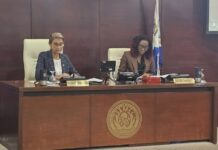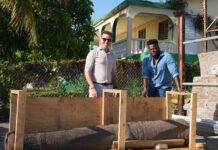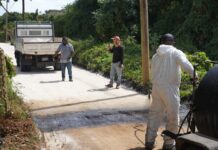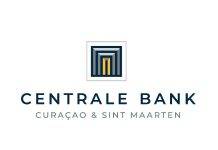Recently in a historical powerful and emotional address to the United Nations, Joseline Thielman, a founding member of Muhernan Fuerte (Strong Women Chapter of Pueblo Progresivo Uni) and a veteran police officer with over 30 years of service on the island of Bonaire, delivered a groundbreaking speech exposing the harsh realities facing children of African descent under Dutch colonial rule.
Speaking on behalf of the Bonaire Human Rights Organization, Thielman addressed the United Nations in New York, not only as a law enforcement professional but as a mother. Her plea focused on the psychological and cultural damage inflicted upon Bonairean youth through systemic discrimination in the education system and wider society.
“Despite my years of experience and unwavering commitment, I stand here today feeling profoundly powerless,” Thielman told the international assembly. “I can no longer stand idly by as Bonairean children, including my own daughter, are subjected to systematic discrimination, harassment, and psychological harm.”
Thielman detailed how children of African descent in Bonaire are being stripped of their cultural identity, denied the right to speak their native language, and wrongly labeled as intellectually inferior due to a lack of fluency in Dutch — a legacy of the colonial education model imposed after the dissolution of the Netherlands Antilles.
“This is not a matter of individual shortcomings,” she stressed. “It is the consequence of an entrenched discriminatory educational and societal structure.”
The result, she warned, is a mental health crisis among vulnerable youth, marked by increased incidents of trauma, self-harm, suicidal ideation, and involvement in criminal activity — all rooted in the frustrations of systemic marginalization.
In her speech, Thielman also revealed the personal risks faced by those who speak out, noting that she herself has experienced intimidation and silencing in her efforts to advocate for her child and others rights.
Her message was clear and urgent: “The children of Bonaire, particularly those of African descent, are in dire need of your intervention. We urgently require your assistance in addressing this profound human rights crisis.”
This historic address marks a watershed moment in the international recognition of human rights violations occurring in Bonaire, and adds pressure on the Dutch government to address the systemic injustices and colonial remnants impacting its Caribbean territories.





























